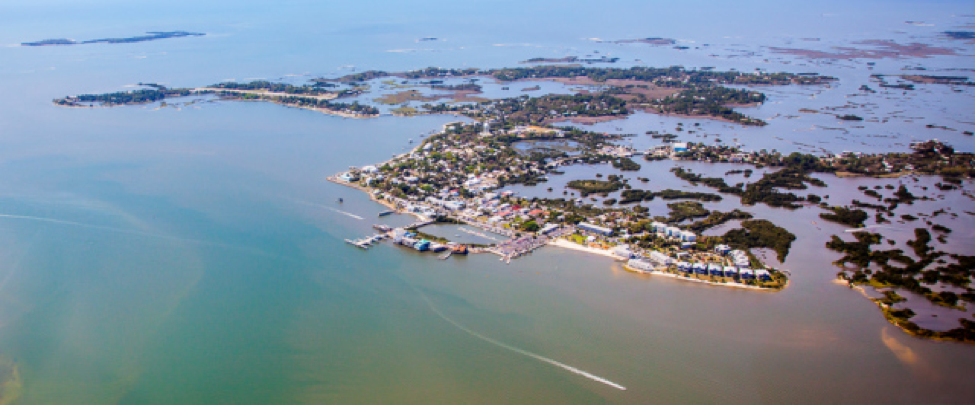
Coastal & Environmental Research
Coastal communities in the United States are challenged by new and increasing threats. Among these threats, flooding of U.S. coastal communities by the combination of severe storm surge and torrential rains has increased over the past century and is expected to increase significantly in coming decades fueled by rising sea surface temperatures. Water quality degradation by nutrients is a major cause of “red tides” and dead zones. Lingering flood waters also transmit diseases and other health hazards. The vision of SURA’s Coastal program is to Advance collaborative research opportunities in the coastal sciences to support transformational and trans-disciplinary community science.
Beginning in 2003 the Southeastern Universities Research Association (SURA) enabled a network of sensors and linked computer models through the SURA Coastal Ocean Observing and Predicting (SCOOP) program https://doi.org/10.3390/jmse8080612. SCOOP improved the path to operational predictions and forecasts of coastal ocean processes. This was critical to the maritime infrastructure of the U.S. and to the well-being of coastal communities. From these successes, a Coastal and Ocean Modeling Testbed (COMT) evolved with NOAA funding via the Integrated Ocean Observing System (IOOS) to facilitate the transition of key models from research to operations http://bit.ly/2fppcS9. From 2010 to October 2018, COMT served as a conduit between the research community and the federal government for sharing and improving models and software tools. SURA’s COMT funding concluded in October 2018.
Over the past three years, emphases of SURA’s coastal and environmental research program have been on promoting a coastal resilience initiative. ( A SURA-led book on this can be accessed at https://doi.org/10.1007/978-3-319-75453-6.) The overarching purpose of these efforts has been to save lives, protect property, and safeguard jobs and infrastructure. SURA is working to accomplish this goal by Improving Understanding, Forecasts and Communication of Future coastal Inundation and Related Socioeconomic Vulnerabilities and Risks by Connecting and Facilitating Collaborations Among Social, Physical, Data, and Ecosystem Scientists, Modelers, Health Professionals, Policy Makers and Stakeholders. Current emphases are on Assessing and Planning for the Impacts of Storms, Flooding and Sea Level Rise on Vulnerable Coastal Communities in coastal Louisiana, Florida and the Middle Atlantic coasts of Virginia and Maryland.

Photo: Cedar Key on Florida’s Gulf Coast is highly vulnerable to sea level rise and storm surge
With funding from the U.S. Integrated Ocean Observing System Program of NOAA, SURA has facilitated strategic collaborations to build and guide the Coastal and Ocean Modeling Testbed (COMT). The initial, $4 million grant to support the vision of distributed, open-access, community science was awarded in 2010, with renewal funding ever since.
The overarching goal of the COMT is to accelerate the transfer of research and development to improve operational coastal ocean modeling and forecasting skill. SURA is advancing the COMT to evaluate the readiness of coastal and marine forecasts, such as flooding from storm surge and seasonal dead zones. Focused along the Atlantic, Pacific, and Gulf of Mexico coasts, the COMT will improve forecasts used by emergency managers and other decision-makers, scientific researchers and the public.